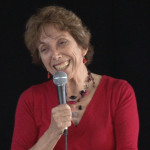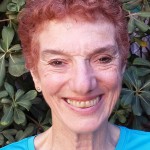My reading
Haftarah Parashat Mattot
Jeremiah 1:1 -2:3
1:1 דִּבְרֵ֥י יִרְמְיָ֖הוּ בֶּן־חִלְקִיָּ֑הוּ מִן־הַכֹּֽהֲנִים֙ אֲשֶׁ֣ר בַּעֲנָת֔וֹת בְּאֶ֖רֶץ בִּנְיָמִֽן׃
1:2 אֲשֶׁ֨ר הָיָ֤ה דְבַר־יְהוָה֙ אֵלָ֔יו בִּימֵ֛י יֹאשִׁיָּ֥הוּ בֶן־אָמ֖וֹן מֶ֣לֶךְ יְהוּדָ֑ה בִּשְׁלֹשׁ־עֶשְׂרֵ֥ה שָׁנָ֖ה לְמָלְכֽוֹ׃
1:3 וַיְהִ֗י בִּימֵ֨י יְהוֹיָקִ֤ים בֶּן־יֹאשִׁיָּ֙הוּ֙ מֶ֣לֶךְ יְהוּדָ֔ה עַד־תֹּם֙ עַשְׁתֵּ֣י עֶשְׂרֵ֣ה שָׁנָ֔ה לְצִדְקִיָּ֥הוּ בֶן־יֹאשִׁיָּ֖הוּ מֶ֣לֶךְ יְהוּדָ֑ה עַד־גְּל֥וֹת יְרוּשָׁלִַ֖ם בַּחֹ֥דֶשׁ הַחֲמִישִֽׁי׃
1:4 וַיְהִ֥י דְבַר־יְהוָ֖ה אֵלַ֥י לֵאמֹֽר׃
1:5 בְּטֶ֨רֶם אצורך [אֶצָּרְךָ֤] בַבֶּ֙טֶן֙ יְדַעְתִּ֔יךָ וּבְטֶ֛רֶם תֵּצֵ֥א מֵרֶ֖חֶם הִקְדַּשְׁתִּ֑יךָ נָבִ֥יא לַגּוֹיִ֖ם נְתַתִּֽיךָ׃
1:6 וָאֹמַ֗ר אֲהָהּ֙ אֲדֹנָ֣י יְהֹוִ֔ה הִנֵּ֥ה לֹא־יָדַ֖עְתִּי דַּבֵּ֑ר כִּי־נַ֖עַר אָנֹֽכִי׃
1:7 וַיֹּ֤אמֶר יְהוָה֙ אֵלַ֔י אַל־תֹּאמַ֖ר נַ֣עַר אָנֹ֑כִי כִּ֠י עַֽל־כָּל־אֲשֶׁ֤ר אֶֽשְׁלָחֲךָ֙ תֵּלֵ֔ךְ וְאֵ֛ת כָּל־אֲשֶׁ֥ר אֲצַוְּךָ֖ תְּדַבֵּֽר׃
1:8 אַל־תִּירָ֖א מִפְּנֵיהֶ֑ם כִּֽי־אִתְּךָ֥ אֲנִ֛י לְהַצִּלֶ֖ךָ נְאֻם־יְהוָֽה׃
1:9 וַיִּשְׁלַ֤ח יְהוָה֙ אֶת־יָד֔וֹ וַיַּגַּ֖ע עַל־פִּ֑י וַיֹּ֤אמֶר יְהוָה֙ אֵלַ֔י הִנֵּ֛ה נָתַ֥תִּי דְבָרַ֖י בְּפִֽיךָ׃
1:10 רְאֵ֞ה הִפְקַדְתִּ֣יךָ׀ הַיּ֣וֹם הַזֶּ֗ה עַל־הַגּוֹיִם֙ וְעַל־הַמַּמְלָכ֔וֹת לִנְת֥וֹשׁ וְלִנְת֖וֹץ וּלְהַאֲבִ֣יד וְלַהֲר֑וֹס לִבְנ֖וֹת וְלִנְטֽוֹעַ׃
1:11 וַיְהִ֤י דְבַר־יְהוָה֙ אֵלַ֣י לֵאמֹ֔ר מָה־אַתָּ֥ה רֹאֶ֖ה יִרְמְיָ֑הוּ וָאֹמַ֕ר מַקֵּ֥ל שָׁקֵ֖ד אֲנִ֥י רֹאֶֽה׃
1:12 וַיֹּ֧אמֶר יְהוָ֛ה אֵלַ֖י הֵיטַ֣בְתָּ לִרְא֑וֹת כִּֽי־שֹׁקֵ֥ד אֲנִ֛י עַל־דְּבָרִ֖י לַעֲשֹׂתֽוֹ׃
1:13 וַיְהִ֨י דְבַר־יְהוָ֤ה׀ אֵלַי֙ שֵׁנִ֣ית לֵאמֹ֔ר מָ֥ה אַתָּ֖ה רֹאֶ֑ה וָאֹמַ֗ר סִ֤יר נָפ֙וּחַ֙ אֲנִ֣י רֹאֶ֔ה וּפָנָ֖יו מִפְּנֵ֥י צָפֽוֹנָה׃
1:14 וַיֹּ֥אמֶר יְהוָ֖ה אֵלָ֑י מִצָּפוֹן֙ תִּפָּתַ֣ח הָרָעָ֔ה עַ֥ל כָּל־יֹשְׁבֵ֖י הָאָֽרֶץ׃
1:15 כִּ֣י׀ הִנְנִ֣י קֹרֵ֗א לְכָֽל־מִשְׁפְּח֛וֹת מַמְלְכ֥וֹת צָפ֖וֹנָה נְאֻם־יְהוָ֑ה וּבָ֡אוּ וְֽנָתְנוּ֩ אִ֨ישׁ כִּסְא֜וֹ פֶּ֣תַח׀ שַׁעֲרֵ֣י יְרוּשָׁלִַ֗ם וְעַ֤ל כָּל־חוֹמֹתֶ֙יהָ֙ סָבִ֔יב וְעַ֖ל כָּל־עָרֵ֥י יְהוּדָֽה׃
1:16 וְדִבַּרְתִּ֤י מִשְׁפָּטַי֙ אוֹתָ֔ם עַ֖ל כָּל־רָעָתָ֑ם אֲשֶׁ֣ר עֲזָב֗וּנִי וַֽיְקַטְּרוּ֙ לֵאלֹהִ֣ים אֲחֵרִ֔ים וַיִּֽשְׁתַּחֲו֖וּ לְמַעֲשֵׂ֥י יְדֵיהֶֽם׃
1:17 וְאַתָּה֙ תֶּאְזֹ֣ר מָתְנֶ֔יךָ וְקַמְתָּ֙ וְדִבַּרְתָּ֣ אֲלֵיהֶ֔ם אֵ֛ת כָּל־אֲשֶׁ֥ר אָנֹכִ֖י אֲצַוֶּ֑ךָּ אַל־תֵּחַת֙ מִפְּנֵיהֶ֔ם פֶּֽן־אֲחִתְּךָ֖ לִפְנֵיהֶֽם׃
1:18 וַאֲנִ֞י הִנֵּ֧ה נְתַתִּ֣יךָ הַיּ֗וֹם לְעִ֨יר מִבְצָ֜ר וּלְעַמּ֥וּד בַּרְזֶ֛ל וּלְחֹמ֥וֹת נְחֹ֖שֶׁת עַל־כָּל־הָאָ֑רֶץ לְמַלְכֵ֤י יְהוּדָה֙ לְשָׂרֶ֔יהָ לְכֹהֲנֶ֖יהָ וּלְעַ֥ם הָאָֽרֶץ׃
1:19 וְנִלְחֲמ֥וּ אֵלֶ֖יךָ וְלֹא־י֣וּכְלוּ לָ֑ךְ כִּֽי־אִתְּךָ֥ אֲנִ֛י נְאֻם־יְהוָ֖ה לְהַצִּילֶֽךָ׃
2:1 וַיְהִ֥י דְבַר־יְהוָ֖ה אֵלַ֥י לֵאמֹֽר׃
2:2 הָלֹ֡ךְ וְקָֽרָאתָ֩ בְאָזְנֵ֨י יְרוּשָׁלִַ֜ם לֵאמֹ֗ר כֹּ֚ה אָמַ֣ר יְהוָ֔ה זָכַ֤רְתִּי לָךְ֙ חֶ֣סֶד נְעוּרַ֔יִךְ אַהֲבַ֖ת כְּלוּלֹתָ֑יִךְ לֶכְתֵּ֤ךְ אַחֲרַי֙ בַּמִּדְבָּ֔ר בְּאֶ֖רֶץ לֹ֥א זְרוּעָֽה׃
2:3 קֹ֤דֶשׁ יִשְׂרָאֵל֙ לַיהוָ֔ה רֵאשִׁ֖ית תְּבוּאָתֹ֑ה כָּל־אֹכְלָ֣יו יֶאְשָׁ֔מוּ רָעָ֛ה תָּבֹ֥א אֲלֵיהֶ֖ם נְאֻם־יְהוָֽה׃










